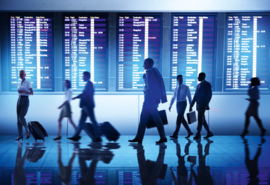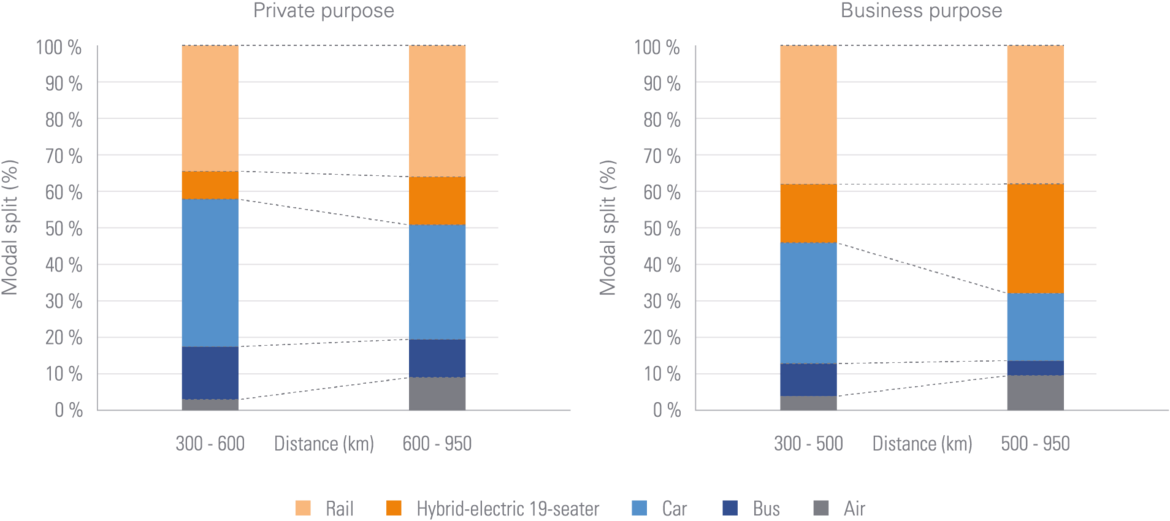To understand the public acceptance and market potential of 19-seater hybrid-electric aircraft (HEA), a two-stage online survey (from late- 2021 to mid- 2023) with representative samples over 3,000 participants in Germany was conducted.

Statistical analysis revealed the positive attitudes to using HEAs but concerns about safety and comfort, especially among respondents with less trust in new technology. Providing clear information about new aircraft technology and pilot experience might help mitigate these psychological barriers. Mode choice modelling results indicated preference for HEAs over kerosene-fuelled airliners and long-distance buses. Business travellers who were less cost-sensitive were willing to pay more for time saved on longer-distance travels with HEAs (€147.6 / hour). This suggested a strong market potential of HEAs in the business sector, enhanced by competitive aircraft speed, efficient airport procedures and seamless connections with first- and last-mile travel. Business travellers, particularly those with reimbursed expenses, favoured HEAs, suggesting well-defined corporate travel policies could promote sustainable business travel.
Although business travellers were willing to pay more for CO2 equivalent emissions reduction (€ 7.5 / kg), there was still a noticeable gap where environmental awareness did not consistently result in greater acceptance of HEA. Bridging this gap might need educational initiatives, policy changes and accessible information on ecological performance. Quantifying and transparently displaying carbon footprints for various transport modes, possibly through eco-labels, is crucial for informed decisions.
Mode share for private and business travel
The figure depicts a shift from ground to air transport for longer distances. Both private and business travellers favoured hybrid-electric aircraft (HEA) over kerosene-fuelled commercial airliners for all distances. In business travel, a significant share of 30 % is seen for longer distances.
Willingness to pay for different transport modes regarding travel time savings (euros per hour)
The table shows consumers’ willingness to pay for a one-hour reduction in travel time. Business travellers, being more time-sensitive, are willing to pay more than private travellers across all transport modes and distances.

This research is part of the GNOSIS project, funded by the German Federal Ministry for Economic Affairs and Climate Action (BMWK). FKZ: 20E1916B


